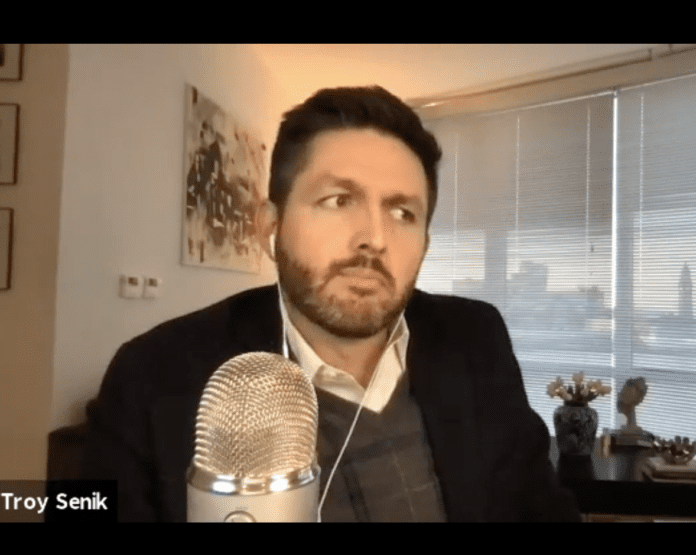Each year Belmont hosts the Belmont University Research Symposium that provides students, faculty and staff a chance to present independent research projects conducted throughout the academic school year. With all events moving virtual, the BURS event and their annual keynote speaker were hosted on Zoom where students were able to learn from the guest lecturer and Belmont alumnus Troy Senik on Thursday, April 8.
Senik is a former presidential speechwriter, the host of a series of public policy podcasts and the co-founder of the digital media company Kite & Key. His keynote presentation discussed the “two pathologies” that have developed in parallel in American society: a reflexive dismissal of expert opinion and a reflexive deference to expert opinion.
The event was moderated by Dr. Vaughn May, chair of Belmont’s political science department, who led the conversation with Senik through a series of questions about his insight and expertise on the media. Much of the event included Senik emphasizing the alarming mass spread of false information by the media and how it has deeply affected the public, especially through the past year.
With social media as one of the leading factors of the spread of misinformation, Senik stated that false information on Twitter was re-shared 100 times more than accurate information on Twitter. He also shared how easy it has become for the public to believe people that provide any sense of authority in regards to their topic. “The better the story is, the less likely we are to give it the scrutiny it deserves,” he expressed.
Senik shared that within the last year, the country has received a lot of information, yet not many reliable tools to help develop understanding, and it has left the country with a lot of ambiguity. Quoting Psychology Author Jamie Holmes, Senik shared, “Our brains are programmed to get rid of ambiguity.” With this in mind, humans have been taught to adopt either blind faith or blind doubt leaving no room for confusions, which can ultimately lead us to false beliefs.
After discussing what the media can do at a systemic level to help the public become aware of both sides of an argument, Senik proposed that consumers of media have to educate and take the initiative to hear from reliable sources on both sides of the spectrum. He discussed the importance of obtaining truthful information from multiple perspectives, not just one, and how our opinions and conversations should be based on accurate sources rather than unreliable media sources that have the ability to portray themselves as authoritative.
“We are all better scholars, better thinkers and better citizens when we tether our arguments and beliefs to facts and data,” Senik shared. “Part of the problem with internet discourse is that people are abstractions. You’re arguing back and forth in text. It’s amazing how much easier these discussions are when you have to actually look at the other person.”
May closed out the night with a Q&A section where Senik answered and discussed further questions with student participants.



